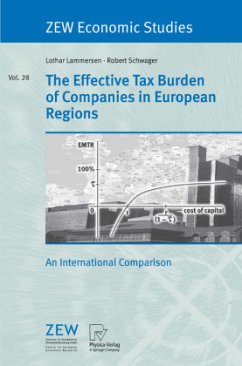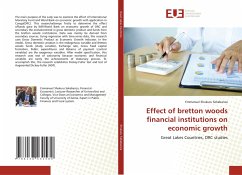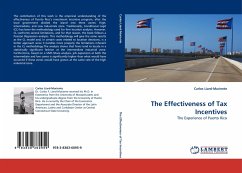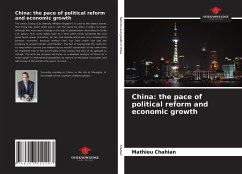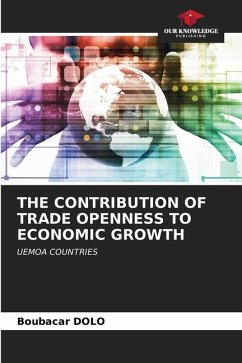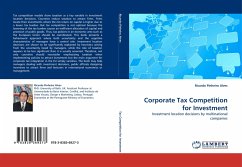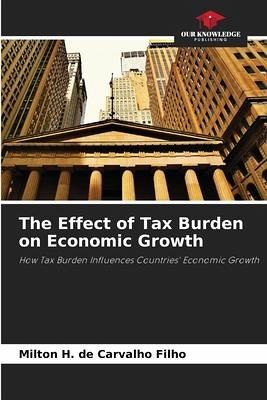
The Effect of Tax Burden on Economic Growth
How Tax Burden Influences Countries' Economic Growth
Versandkostenfrei!
Versandfertig in 6-10 Tagen
27,99 €
inkl. MwSt.

PAYBACK Punkte
14 °P sammeln!
The literature emphasises the institutional characteristics of each nation as the main explanatory factor of economic growth. There is also evidence that taxation and the efficient application of public resources positively affect the quality of life of citizens. The objective of this paper is to verify the impact of taxes on short-term economic growth and the effects of their efficient application. This paper also set out to verify whether characteristics such as inflation, public spending, interest rates and others related to the degree of freedom of private initiative, property rights, corr...
The literature emphasises the institutional characteristics of each nation as the main explanatory factor of economic growth. There is also evidence that taxation and the efficient application of public resources positively affect the quality of life of citizens. The objective of this paper is to verify the impact of taxes on short-term economic growth and the effects of their efficient application. This paper also set out to verify whether characteristics such as inflation, public spending, interest rates and others related to the degree of freedom of private initiative, property rights, corruption and bureaucracy influence the performance of economies. The sample consisted of 219 countries in the years 2000-2016. The results suggest that excessive tax burdens and red tape negatively impact economies and that their effects are reduced in the long run by efficient public resource management. They also indicate that the effects of ownership, economic freedom and interest rates arepositive on growth and quality of life in the long run.





